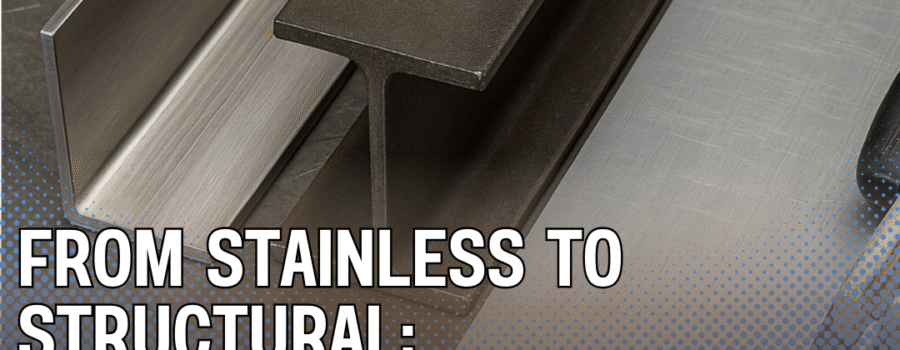In the fields of welding and fabrication, selecting the appropriate metal is as important as the quality of the weld itself. Material choice impacts strength, durability, corrosion resistance, weight, cost, and weldability. It also affects long-term compliance with safety standards and engineering specifications. In Ontario, where commercial, industrial, and municipal projects are subject to rigorous building codes and safety legislation, material decisions must be grounded in both technical merit and regulatory understanding.
Onhydro Tech Inc., based in Cambridge, Ontario, provides expert guidance in selecting and welding the correct metals for structural, mechanical, and aesthetic applications. Whether the requirement is for corrosion-resistant stainless steel, load-bearing carbon steel, or lightweight aluminum, the choice must align with the project’s purpose, code requirements, and environmental demands.
Structural Steel: The Backbone of Industrial Builds
Structural steel is one of the most commonly used materials in fabrication due to its high strength-to-weight ratio, consistent composition, and ease of welding. Its standardization under CSA G40.21 (in Canada) ensures that its properties are predictable and suitable for use in buildings, bridges, equipment supports, and mezzanines.
This type of steel is ideal for facilities requiring significant load-bearing capacity, especially when combined with engineered welds and stress-tested designs. Onhydro Tech applies welding techniques such as Shielded Metal Arc Welding (SMAW) and Flux-Cored Arc Welding (FCAW) to structural steel, ensuring integrity in high-stress environments. Welding is conducted in accordance with Canadian Welding Bureau (CWB) certification to ensure all connections meet provincial and national standards.
Stainless Steel: Corrosion Resistance and Cleanability
Stainless steel is favoured in sectors requiring hygienic surfaces and corrosion resistance, such as food processing, pharmaceuticals, and medical manufacturing. Composed primarily of iron, chromium, and nickel, stainless steel forms a passive protective layer that resists oxidation and contamination.
Common grades include 304 for general corrosion resistance and 316 for environments with high salinity or exposure to corrosive chemicals. Welding stainless steel requires specialized techniques to avoid sensitization (grain boundary corrosion) and distortion. Onhydro Tech applies Gas Tungsten Arc Welding (GTAW/TIG) for precise, clean welds, minimizing heat-affected zones and maintaining surface finish where required.
Aluminum: Lightweight and Conductive
Aluminum is a non-ferrous metal known for its low density, corrosion resistance, and excellent thermal and electrical conductivity. Its use is prevalent in transportation, HVAC systems, aerospace, and lightweight structural applications. However, welding aluminum presents distinct challenges, including high thermal conductivity and oxide layer interference.
Appropriate preparation, preheating, and the use of alternating current in GTAW or GMAW processes are required to achieve defect-free welds. Onhydro Tech evaluates the grade of aluminum—such as 6061 or 5052—to match the welding process and filler material, ensuring optimal strength without compromising ductility or fatigue resistance.
Galvanized Steel: Durable but Demanding
Galvanized steel, commonly used in outdoor or industrial settings, includes a protective zinc coating to resist rust. However, welding through this coating can release hazardous fumes and compromise weld integrity if not managed properly. Adequate ventilation, removal of zinc near the weld zone, and post-weld touch-up are essential for a compliant and safe finish.
Onhydro Tech utilizes welding procedures that mitigate health risks and ensure the structural reliability of galvanized components, particularly in HVAC, fencing, and building envelope systems.
Engineering, Environment, and Code Compliance
Material selection is not solely a technical matter—it is also a legal one. Projects involving welding must adhere to codes such as CSA W47.1 and ASME Section IX. Improper selection can result in failure to meet occupancy requirements, triggering costly redesigns or enforcement actions.
Onhydro Tech offers engineering-informed welding services, assisting in material selection, weld planning, and on-site execution. Serving clients across Cambridge and the surrounding region, the company ensures that each project satisfies both performance goals and regulatory obligations.
To consult on material selection or schedule certified mobile welding, contact Onhydro Tech Inc. at 647-248-6682 or visit onhydrotech.ca.

